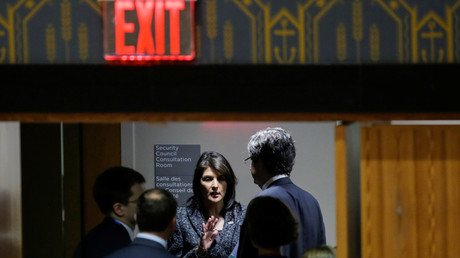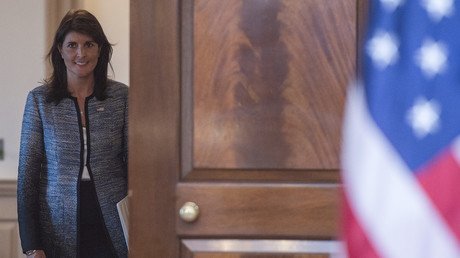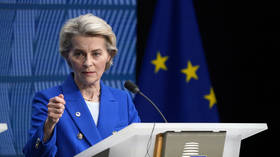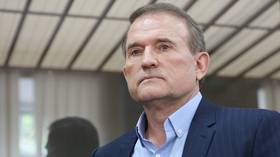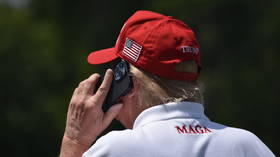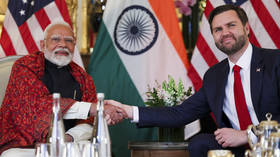Old wine, new bottles: Trump withdrawal from UN Human Rights Council is business as usual for US
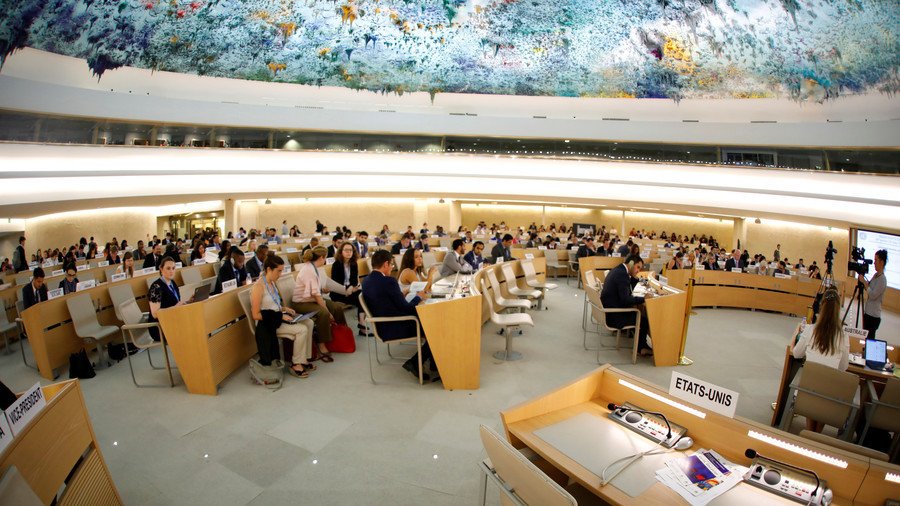
Unlike other decisions taken by Donald Trump the announcement that the US is leaving the UN Human Rights Council has a lot of background in the policies adopted by previous administrations, many of which also despised the body
Trump has gone a little further than his predecessors but his attitude is not fundamentally different from theirs.
Not only has the US had a long-running dispute with the UN in general, over its budget contribution and the body's alleged hostility towards Israel, it has also sought to undermine the role of the Human Rights Council in particular, long before Trump was elected. A former US representative to the UN founded the NGO UN Watch in 1993 to campaign against the UN's perceived anti-Israeli bias.
In 2004, even before the Human Rights Council was created in 2006, the USA sponsored the creation of a "democracy caucus" within the UN whose goal was to increase the influence of the US and its allies in the organization, on the basis that countries deemed democratic should have greater rights.
The potential for abuse of this principle was both enormous and obvious. Yet it reflected the decision taken by the Clinton administration in 1999 to arrogate to the US and its allies, especially NATO, the right to adjudicate and enforce human rights around the world. As the British Prime Minister Tony Blair explained at the time, the 78-day NATO attack against Yugoslavia was designed to establish this as a new principle of international relations. In its new strategic concept promulgated at the height of the bombing of a small Balkan country by the most powerful military alliance in the history of the world, NATO announced that "the abuse of human rights" was a security threat to which it had the right to react.
This in turn was a continuation of the assumptions underlying the creation of the Organization for Security and Cooperation in Europe (OSCE) in November 1990, which provided a structure for covert operatives from Western states to manipulate elections across post-Communist Europe in the name of human rights and democracy promotion. The OSCE itself was initially created as the CSCE (Conference on Security and Co-operation in Europe) at Helsinki in 1975 when the goal was also to undermine the USSR on the same pretext.
So, when Nikki Haley, the US ambassador to the UN, says that the US will continue to "lead" on human rights from outside the Human Rights Council, she is not saying much that is new. The novelty lies only in that the US feels that it can no longer control that body. In 2011, things were the other way around: the US encouraged a gross abuse of the Human Rights Council's own procedures when it helped secure the expulsion of Libya from it on 25 February 2011, without the Universal Periodic Review, which the HRC had published for Libya the previous month, being even considered.
The expulsion occurred on the basis of allegations made by bogus NGOs (front organizations for the then Libyan opposition) which, not surprisingly, turned out later to have been utterly baseless. But the momentum was such that a Security Council resolution was obtained on 17 March 2011 and NATO launched its attack two days later.
A war launched ostensibly to protect civilians was then used to effect regime change (as the then-Foreign Minister of France confirmed at the time), and no attempt was made to protect civilians deemed loyal to Gaddafi. NATO's allies justified their massacre at Sirte in September 2011 by saying that the town's residents had "chosen to die". The fact that these decisions were taken "multilaterally", as Emmanuel Macron likes to say, is irrelevant when it comes to judging their fundamental injustice.
The allegation of US double standards on human rights is probably familiar to many readers. But what the continuity of US policy shows (a continuity only slightly masked by this latest institutional change of tack) is the inevitable damage caused when political conflict is translated into the language of rights. Such a translation only aggravates the all too human tendency to identify one's own cause with the highest moral principles.
Because this danger is so obvious, the UN was created to evacuate such issues from international discourse. Its charter and practices until the 1980s were based on the principles of state sovereignty and non-interference in the internal affairs of states, not on human rights. Resolutions by the General Assembly, in 1965 and in 1981 on the inadmissibility of intervention in the internal affairs of states, and in 1970 on friendly relations between states, when non-interference was reiterated, were all totally unambiguous. In 1981, for instance, the General Assembly recalled "the duty of a State to refrain from the exploitation and the distortion of human rights issues as a means of interference in the internal affairs of States".
These resolutions were bolstered by rulings by the International Court of Justice, the supreme judicial body of the UN system, for instance in a famous 1986 case opposing the USA and Nicaragua where the former was supporting the Contra rebels. The ICJ ruled that "the Court cannot contemplate the creation of a new rule opening up a right of intervention by one State against another on the ground that the latter has opted for some particular ideology or political system" and that "in any event, while the United States might form its own appraisal of the situation as to respect for human rights in Nicaragua, the use of force could not be the appropriate method to monitor or ensure such respect."
These principles came under sustained assault in the post-Cold War period and they are now considered to have been buried under the Western doctrines of humanitarian intervention and "the right to protect". Their burial reflects a far deeper problem, which constitutes the biggest threat to the international order today: the almost psychotic inability of the US leadership to engage with other international actors on the basis of that complexity which is inherent in states having a different point of view, a different culture and a different value system.
Instead, the US remains in hock to what was originally known as the "Open Door" school of US diplomacy of William Appleman Williams (1921-1990), which holds that America will be safe in the world only when the world becomes like America and is dominated by it.
Stated forcefully by George W. Bush and by Donald Trump's administration in the 2018 National Defense Strategy, this doctrine was also endorsed by Clinton and Obama.
Many years after Clinton's Kosovo war, Obama's Vice-President, Joe Biden, proudly told his Albanian taxi driver outside the US military base in Kosovo, where the soldiers were of different ethnic backgrounds: "There's America. Until you figure out how to live together like we do, you will never, never, never make it."
Between Trump and his nemesis Biden, therefore, there is no essential difference - and that is a major problem for the rest of us.
Think your friends would be interested? Share this story!
The statements, views and opinions expressed in this column are solely those of the author and do not necessarily represent those of RT.

